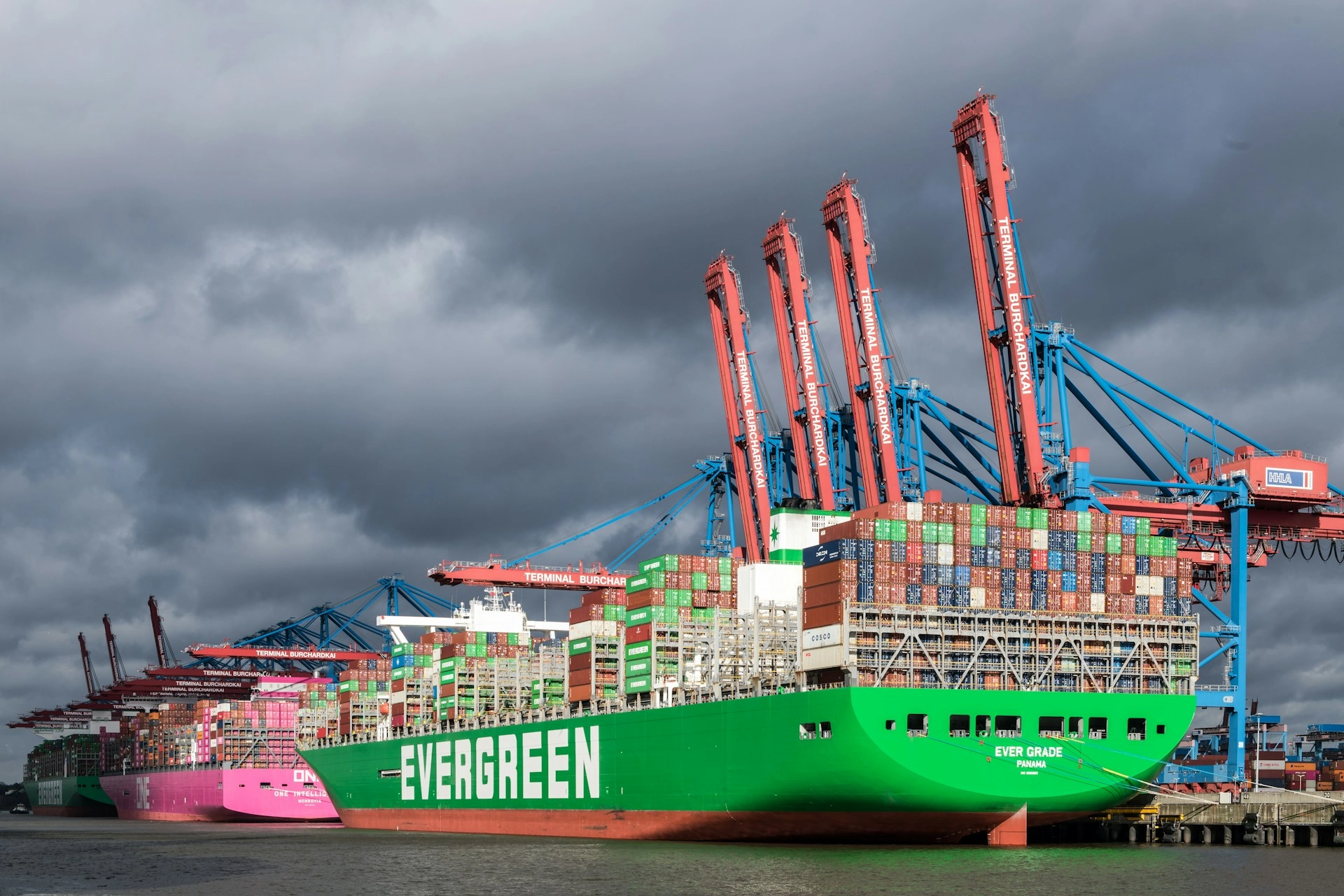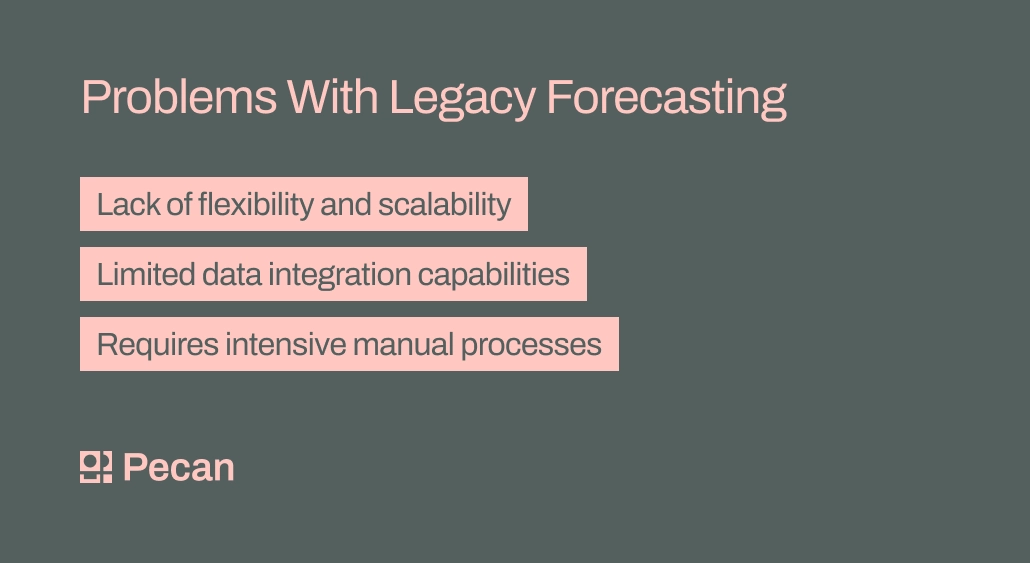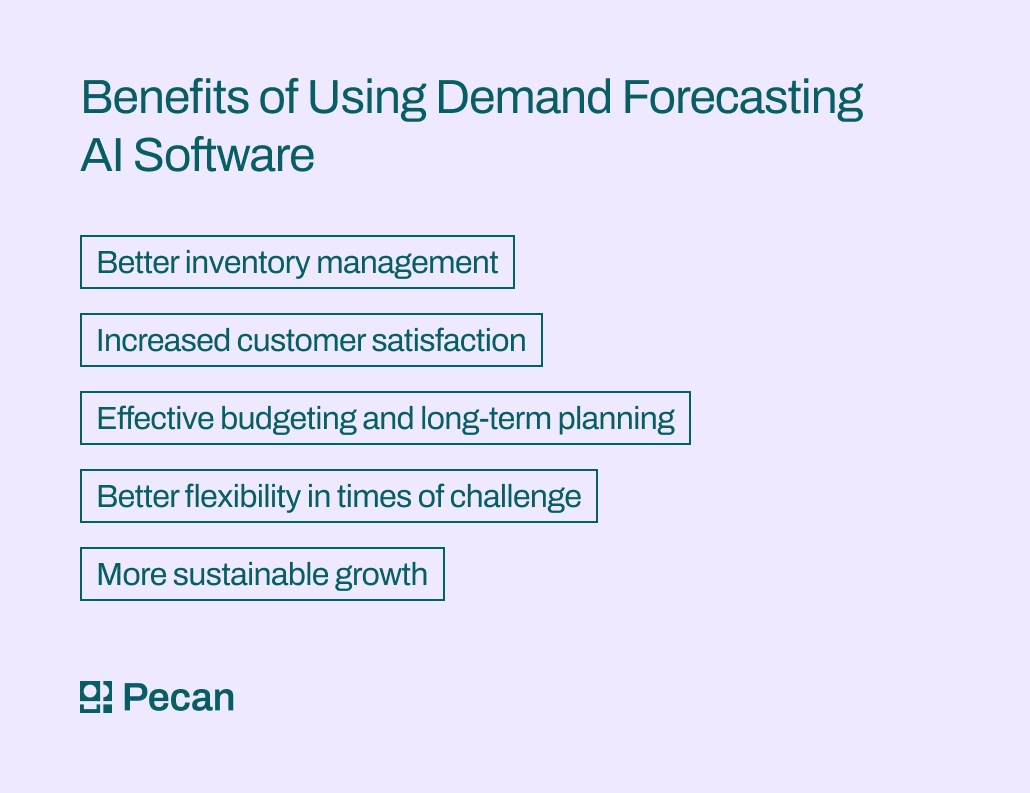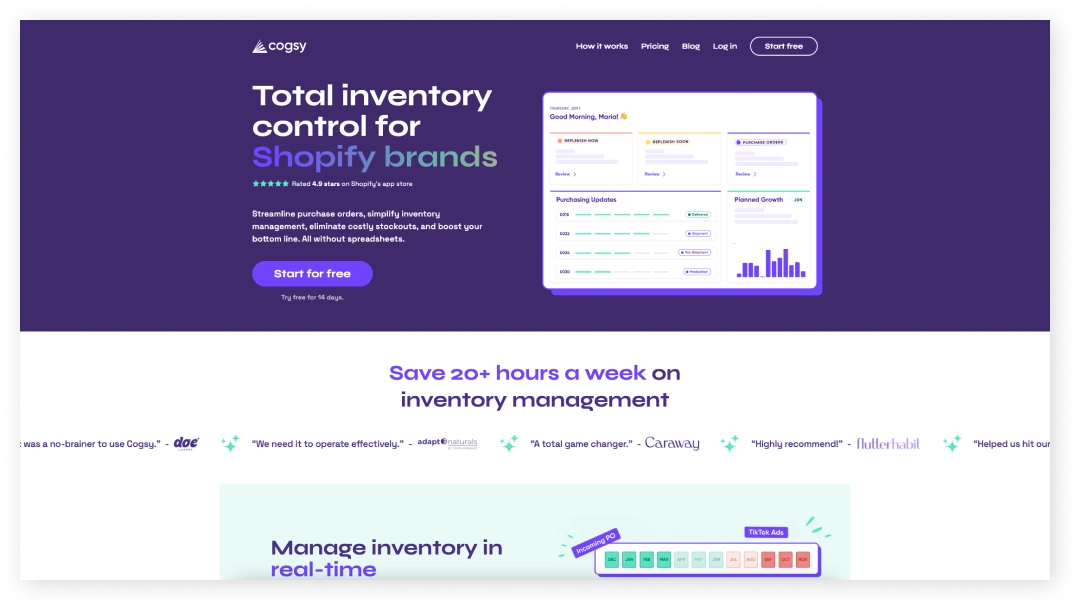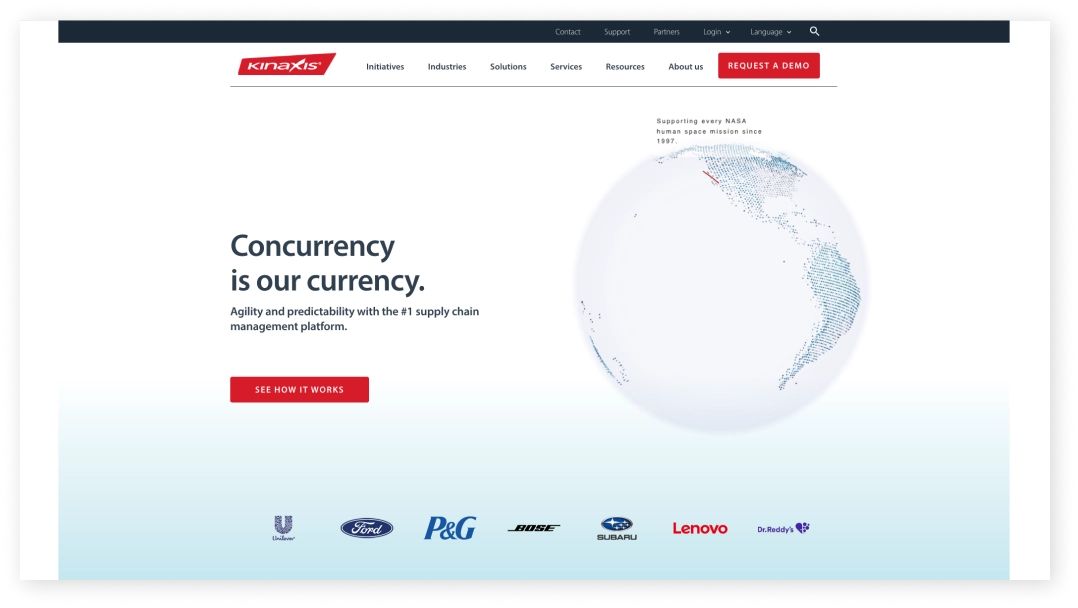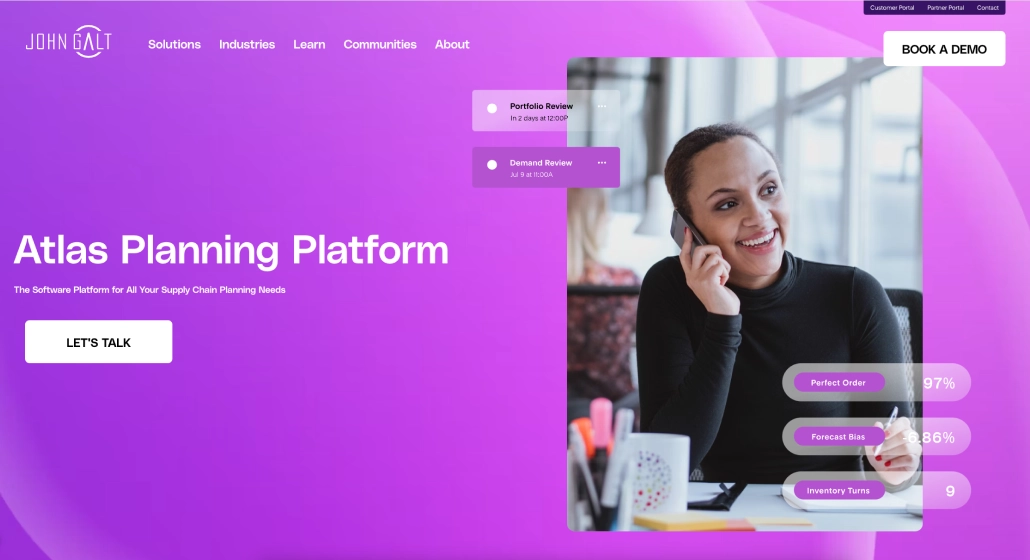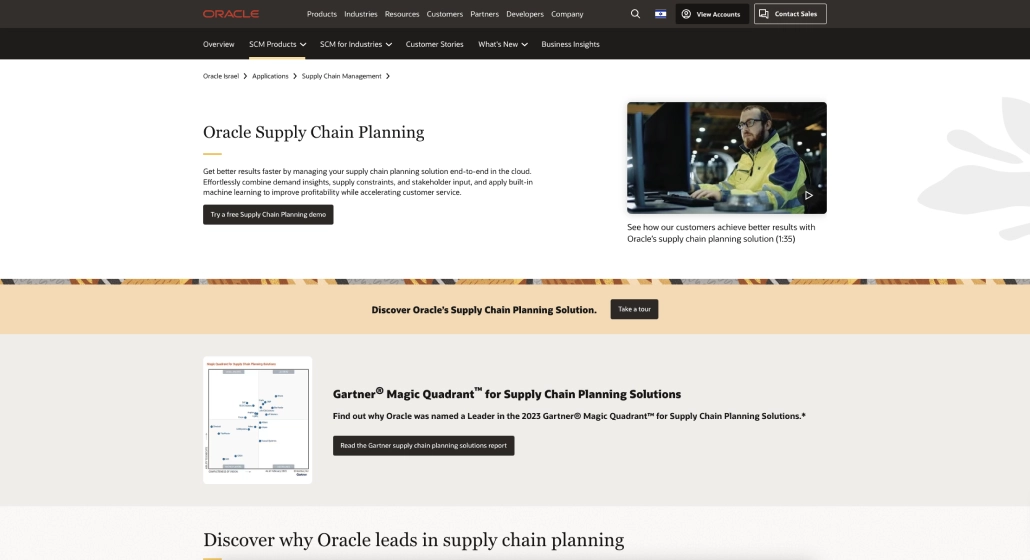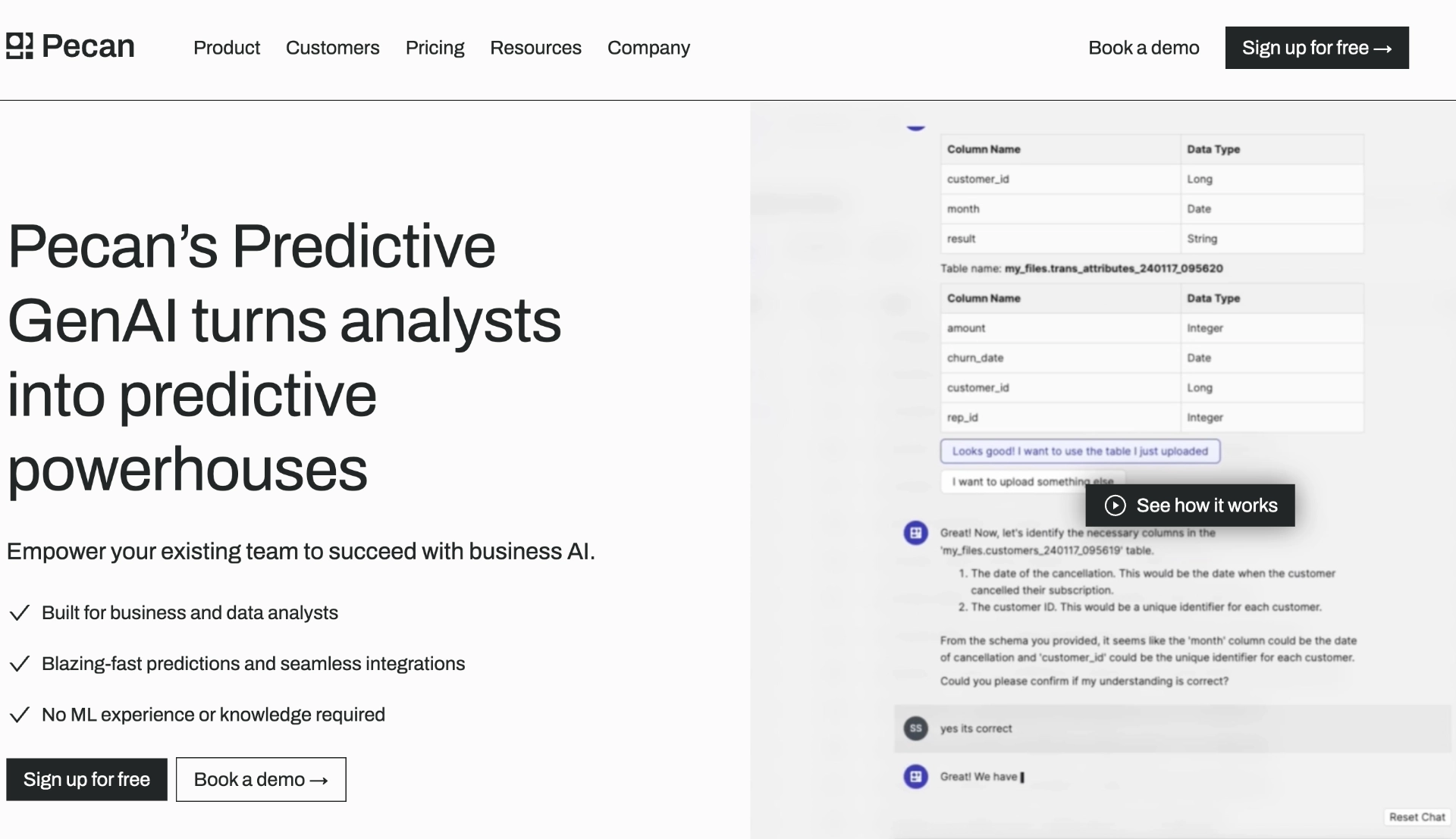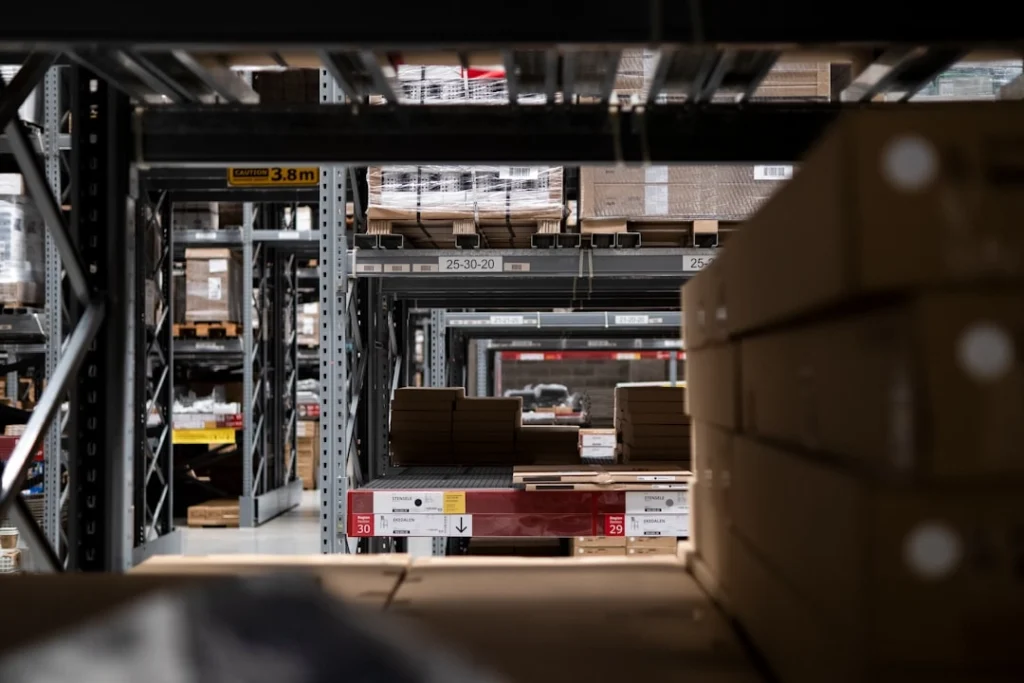In a nutshell:
- Modern demand forecasting solutions use AI and machine learning to predict consumer demand, manage inventory, and optimize pricing.
- Legacy forecasting solutions have limitations, such as a lack of flexibility, limited data integration capabilities, and intensive manual processes.
- AI-powered demand forecasting software offers benefits like better inventory management, increased customer satisfaction, and effective budgeting.
- Our top five demand forecasting software picks include Cogsy, Kinaxis Rapid Response, Atlas Planning Platform, Oracle Cloud Supply Chain Planning, and Pecan AI.
During the pandemic, 60+ ships waited for weeks — and then months — to unload at the ports of Los Angeles and Long Beach. While bigger retailers like Walmart and Target eventually started to charter their own ships to move products, smaller businesses weren’t so lucky, with some facing long-lasting stockouts and severe harm to their businesses.
Other instances, like one cargo ship blocking the Panama Canal for six days, highlight the reality that every business needs to plan for supply chain disruptions in addition to the day-to-day realities of seasonality and other economic factors.
With the right demand forecasting software, you can reduce the impact of these supply chain issues, optimize your pricing and stock levels, and ensure you get your products where you need them to delight customers.
But choosing the right solution isn’t always easy, especially with so much at stake. In this blog, we break down the must-have elements of an effective demand forecasting solution.
Photo by Wolfgang Weiser on Unsplash
Demand Forecasting Software in Action
Modern demand forecasting solutions use machine learning and AI to help you meet customer demand with higher accuracy, reduce overstocks and stockouts, and improve overall cash flow. These platforms provide out-of-the-box solutions capabilities to help you quickly and easily solve specific issues, such as:
- Predicting consumer demand. Forecast sales, orders, shipments, and other volume metrics. See which factors influence buyer behavior, including seasonality and economic realities.
- Forecasting sales and cash flow. Predict sales trends and understand their impact on cash flow so you can better align resources across the business.
- Managing inventory and reducing overstocks and stockouts. Optimizing inventory levels can help you improve operational efficiency. You can also reduce supply lead time, lower reverse logistics costs, and increase sales with better product availability.
While accuracy and offerings can vary based on the demand forecasting software, some of the best AI demand forecasting platforms allow for easy integration with your existing tools and are capable of identifying some of the most microscopic correlations in your data based on complex patterns (where the most analytical minds only see erratic behaviors).
These platforms can even help you determine what to look for when solving specific scenarios, so you can more easily predict what, when, and how to provide your customers with services.
It’s also important to note the differences between demand planning and demand forecasting.
While demand forecasting solutions' main goal is to predict demand for products and services, demand planning takes this one step further. Demand planning uses insights from demand forecasting solutions to inform comprehensive, organizational-wide strategies involving many parts of the business, including analytics, finance, HR, sales, marketing, and other departments.
Demand planning decisions go beyond stock levels and machine maintenance to incorporate additional organizational-wide elements like workforce planning and budget allocation. Both are vital functions for a healthy and thriving supply chain.
One high-tech manufacturer used Pecan’s demand forecasting functionality to optimize their supply and demand. By integrating the Pecan platform directly into their CRM system, they turned raw data into highly accurate forecasts that helped reduce labor costs and boost inventory cost savings.
Problems With Legacy Forecasting
As data sources increase and data science capabilities become more vital, the demand forecasting landscape grows and adapts. While traditional forecasting solutions are still used today, they face undesirable limitations, such as:
Lack of flexibility and scalability
Traditional solutions lack the flexibility needed to react rapidly to changes. They may be unable to handle large volumes of data or lack cloud functionality, meaning your team may not be able to access data or collaborate on analytic projects.
Limited data integration capabilities
You should be able to integrate all the programs you use for your supply chain analytics, not just one or two. Unfortunately, many legacy forecasting options have trouble connecting to other solutions, creating manual work and friction for you and your team.
Requires intensive manual processes
Some demand forecasting solutions require high levels of coding or manual data preparation before you can uncover insights. Not only does this take up valuable time, but it also increases the risk of human error.
Contrary to traditional solutions, AI-powered demand forecasting software can prepare data instantly, generate models in minutes, and even let you ask questions anytime in your process through the power of generative AI.
Let’s look at more of the benefits of AI-powered demand forecasting solutions.
Benefits of Using Demand Forecasting AI Software
The adoption, training, and integration of a new demand forecasting software takes time. You don’t want that effort to go to waste. When you find the right AI-powered demand forecasting software, you can mitigate disruption and reap other benefits such as:
Better inventory management
Accurate demand forecasting solutions facilitate your team’s inventory management process, helping you match supply and demand. You can enjoy less overstocking or stockouts and more cases of having just the right amount.
Increased customer satisfaction
When your products and inventory better meet your customers’ wants and needs, you’ll have happier, more loyal customers. The same data that can help improve your supply chain can also offer your customers a more personalized customer experience.
Effective budgeting and long-term planning
With the right program, you can identify patterns contributing to more lucrative long-term decision-making while mitigating short- and long-term pitfalls related to shipping times, inventory levels, and machine maintenance.
Better flexibility in times of challenge
A program fed a steady stream of data can pick up on minute shifts in the marketplace and help you pivot your supply chain as needed. Demand forecasting can help reduce the stress of significant impacts from incidents like a road closure or a significant shipment loss.
More sustainable growth
For companies trying to expand, the right demand forecasting program can help you grow at the right pace and even provide insights if you’re looking to expand into an entirely new market.
Choosing the Best Demand Forecasting Software
Before investing in a solution, determine the key criteria for your ideal demand forecasting software. The considerations below can kick-start the decision-making process, helping you narrow your options based on which features and functionality your team needs most.
Functionality
First and foremost, your demand forecasting software needs to be able to accomplish the tasks that you absolutely need it to. For example, are you looking to forecast demand to plan staffing needs? Or are you trying to also improve the effectiveness of your marketing budget by keeping it focused on your most high-conversion products? Look for the options that meet your business needs today — and have the ability to grow with you.
Automation and ease of use
While any program will always need some human management, seek out demand forecasting software that offers the right level of automation and ease of use for your business. For example, suppose you don’t have time to prepare data or run reports manually. In that case, it may be best to find a program that automatically cleanses your data and generates reports for you at specific times.
Integration
AI programs need time to be trained and integrated with your existing programs and data streams. Some programs will take longer to integrate but may offer higher customization options, while others will integrate quickly and easily with out-of-the-box or low-code solutions. Consider your timeline for implementation, who and what will be required to go live, and what will be needed for ongoing maintenance.
Adaptability
Demand forecasting software is meant to help you stay ahead of competitors and industry changes. Depending on your industry, you’ll need to look for a program that keeps up with the latest technology. Prioritize vendors consistently investing in improvements in their platform, including incorporating new technologies like generative AI.
Top 5 Demand Forecasting Solutions
Not sure where to start looking? Consider these five popular demand forecasting software solutions.
Cogsy
Demand Forecasting Software #1: Cogsy
How it works: Built for direct-to-customer merchants and sellers, Cogsy is a platform that pulls together historical data, real-time sales, and emerging demand trends to help you manage inventory and scale your business.
Strengths: Cogsy analyzes data and creates forecasts by considering various factors, such as seasonality and inventory turnover ratio. It can easily integrate with your selling platform and tools, from Shopify to Extensiv, to create one single resource for easier and faster product decision-making.
Limitations: While Cogsy streamlines inventory management and helps resolve inefficiencies, it may not be the best solution for larger enterprise businesses, as it’s built to meet smaller businesses’ demand forecasting needs.
Kinaxis
Demand Forecasting Software #2: Kinaxis Rapid Response
How it works: Kinaxis is a cloud-based supply chain platform that helps with supply chain management and sales and operations planning. It provides users with solutions for advanced supply chain needs. The software makes overcoming demand and distribution challenges easier by combining human knowledge with AI to improve risk mitigation and response.
Strengths: Marketed as an “all-in-one” platform, Kinaxis offers a suite of scenario planning capabilities and can manage large volumes of data. Its real-time insights make it a good fit for companies with larger, more complex supply chains. It also offers “concurrent” insights, meaning you can run multiple supply chain planning processes simultaneously.
Limitations: Kinaxis’s training materials can be complex, which may lengthen the time it takes to integrate into your existing systems and get users up and running. That same complexity may make this software too demanding for smaller companies with fewer resources. Kinaxis also lacks the granularity of other vendors and has a higher price tag.
Atlas
Demand Forecasting Software #3: Atlas Planning Platform
How it works: An AI-powered SaaS solution, Atlas integrates a large amount of data from multiple sources and will partner with your team at any point in the supply chain process, from sales and operations planning to supply chain needs to scheduling deliveries.
Strengths: Atlas provides out-of-the-box templates that you can fine-tune to meet your demand forecasting needs.
Limitations: Overall, implementation of this software can be complex depending on how your data is stored. Its reporting features can also be tricky to use and may require significant manual oversight.
Oracle
Demand Forecasting Software #4: Oracle Cloud Supply Chain Planning Solution
How it works: Oracle’s supply chain solution specializes in S&OP (sales and operations planning) through a cloud-based platform.
Strengths: Oracle offers many automation features, has customizable granularity, and has a straightforward pricing plan.
Limitations: Oracle lacks an easy-to-use interface and advanced planning capabilities. And while Oracle can be deployed in a private or public cloud, it’s limited to Oracle-based clouds, limiting the options for your internal infrastructure.
Pecan
Demand Forecasting Software #5: Pecan
How it works: The Pecan platform is a trustworthy demand forecasting solution that allows you to plan ahead to meet consumer demand with hyper-granular predictions.
Strengths: Pecan’s experts are skilled at assisting customers in building effective, accurate forecasts. With demand forecasting customers in various industries, the Pecan team can quickly develop and tailor your forecast models so you can plan for consumer demand and drive a great customer experience. Intuitive dashboards help you understand model performance and review essential metrics. Automated data prep and feature engineering expedite the modeling process so you always have the latest forecasts as a guide.
Limitations: Highly complex models could necessitate more support from the Pecan team.
Optimize Your Supply Chain Today With AI-Powered Demand Forecasting Software
Every demand forecasting solution has pros and cons. Take time to consider your options, and don’t be afraid to ask questions. The right choice can make the difference between being stuck at sea or sailing through the choppy waters of disruption.
Ready to try Pecan for your demand forecasting software needs? Book your demo today and see how Pecan can help you crack open hidden vulnerabilities in your supply chain.
